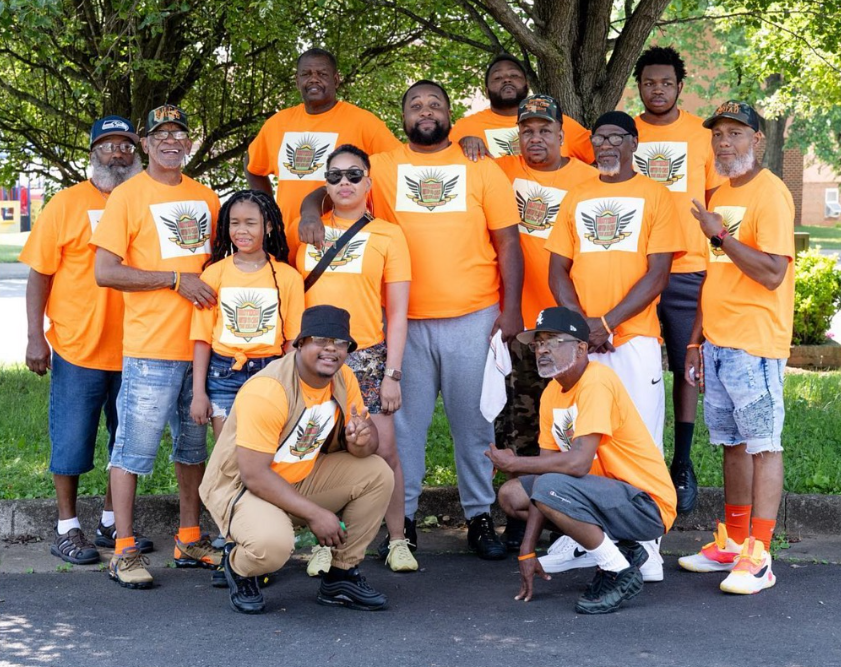Controversy arose last week when local violence interruption group the B.U.C.K. Squad announced that City Council reduced its funding for 2025. While councilors argue the $200,000 allocation from the Vibrant Community Fund shows strong support for the group, the B.U.C.K. Squad’s leadership is disappointed and confused by the decrease from the proposed $456,000.
“The BUCK Squad is grateful for the $200,000 budget allocation from the City via the Vibrant Community Fund,” the group posted on Facebook April 8. “However, we are disappointed that Council chose to reduce the original recommendation from the City Manager and the hard working VCF from $456,000 when gun violence continues to be an escalating problem in Charlottesville.”
According to Assistant Executive Director Bryan Page, the group was planning to use the extra money to increase its staff, provide improved coverage and services to the sites it monitors, and expand the program to include more hotspots. The cut to the proposed allocation has dashed its original plans, due to roughly 95 percent of funding going to payroll, per leadership estimates, with employees paid $18 to $19 an hour.
B.U.C.K. Squad members are often out in the middle of the night investigating and de-escalating tips called in to its hotline, which Page says “rings all night.” Call data shared by Page shows the group received 4,061 calls between 2021 and the end of 2023, investigated 595 tips, and interrupted 234 incidents.
C-VILLE can not independently verify the data because of the anonymous nature of the B.U.C.K. Squad’s call records.
Page acknowledges the city’s statements of support for the B.U.C.K. Squad, but says the rationale provided for reallocating funds was disappointing. “The budget was $250 million,” he says. “You give us $200,000 out of $250 million to fight gun violence?”
“These people are not in these neighborhoods, seeing how people are living. We do. And it’s always those closest to the problem close to the solution” says Page. “I’m effective in what I do because of my reputation … [it’s] all based on reputation and relationships.”
In its Facebook post, the B.U.C.K. Squad also suggested that Councilor Michael Payne’s position on the Charlottesville Redevelopment and Housing Authority board is a conflict of interest, and he should not have participated in the reallocation process.
Payne is the City Council representative on the CRHA board, and denies any conflict of interest.
“There has always been a City Council representative on the CRHA board, the same as how Councilors serve on numerous boards and commissions,” Payne told C-VILLE in an email. “I receive no income or financial benefits—in any way—from CRHA.”
While Payne has not spoken directly with the group since the Facebook post, he told C-VILLE in a follow-up interview that he doesn’t “take it personally” and said “there [are] dedicated people in the B.U.C.K. Squad doing important work.”
“Adjustments have always been part of our process,” says Payne. “The VCF makes initial recommendations to council at the beginning of the budget season, and then council with the city manager works through adjustments. The conversation was pretty standard, this year was like every other, where the requests we had far out matched the amount of money in the Vibrant Community Fund.”
Council members opted to redistribute allocations within the VCF to provide money to two groups previously not receiving any funding—the CRHA and the Uhuru Foundation. Both organizations address systemic causes of gun violence, but received a “weak” funding request designation from the VCF.
“We had programs that we wanted to fund, and we just didn’t have the money to do it,” says Mayor Juandiego Wade. “[The B.U.C.K. Squad] was a program that we saw that had gotten a lot more than they had in the past.”
Despite the decrease from the original allocation proposal, the B.U.C.K. Squad will receive about $40,000 more this year from the city’s Vibrant Community Fund. It is also receiving the largest allocation of any organization this year.
“We also wanted to acknowledge that there are other players in the field too, and so that’s where some of the funding went,” says Wade. “We realized that we can’t [address gun violence] alone as a city, that’s why … we support the many nonprofits that we do.”
The B.U.C.K. Squad is “out there doing great work. I mean, I know that they were on the ground with this first homicide that we had of this year,” says Wade. “Unfortunately, they couldn’t stop that. But what they’re doing now is preventing the retaliations and so they’re on the ground … doing important, incredibly important work. And we as councilors, we as a city, we appreciate their work.”












